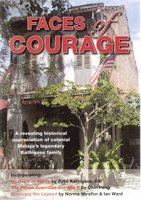
According to Malaysiakini copies of the book May 13: Declassified Documents on the Malaysian Riots of 1969 by Dr. Kua Kia Soong were confiscated by a team of ministry officers visited the MPH bookstore in Midvalley Megamall this afternoon and the officers advised the popular bookstore not to sell the book as it "may be banned".
This also follows the call by three senators for the book to be banned.
Update
Just read on Elizabeth Wong's blog that the book is not banned - just that the first printing is sold out and now you will need to wait for the second. (Get your orders in!)
She describes exactly what happened at MPH yesterday ... and threatens legal action.
Hmmm ... I think the KDN has actually done SUARAM a big favour by boosting the "must have" value of the book.
What's so controversial?
According to Malaysiakini:
The ‘official version’ of it has always been the violence was triggered off by the Chinese-dominated opposition supporters’ provocation in celebrating their electoral victory which saw the ruling Alliance Party suffered a major setback.Dr. Kua who spent three-months researching recently declassified documents at the Public Records Office in London including official correspondence and intelligence reports by British officers, apparently argues that the riots were not random acts of communal violence but a coup d’etat attempt by a faction within Umno, and that the coup attempt against then premier Tunku Abdul Rahman was also backed by the police and army with the intention of forging a new Malay agenda.
The official records and history books it seems put blame on the opposition parties “infiltrated by communist insurgents” and this does rather turn the whole thing on its head.


